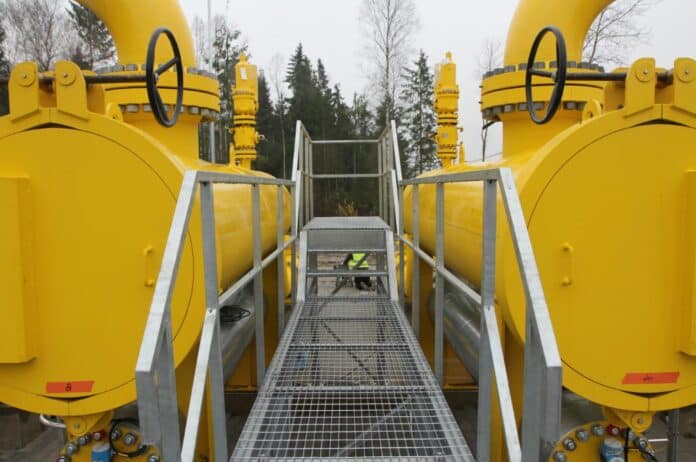The Balticconnector gas pipeline, which suffered significant damage on Sunday, will take months to repair, with the situation turning out to be more serious than initially assumed. The exact leak location and cause remain unknown, causing further concerns about energy security in the region.
Janne Grönlund, Director of the Finnish gas transmission system operator, Gasgrid Finland, in a statement reported by RIA Novosti, emphasized, “The resumption of the Balticconnector pipeline operation between Finland and Estonia will take months.” As of now, there are no details regarding the exact leak location, and the operator avoids speculating about potential causes. Grönlund further mentioned that accessing the pipeline would take several days, requiring the completion of permission procedures and equipment preparation. Given the stormy Baltic weather, the underwater repair, requiring divers, poses additional challenges.
However, Finland’s Energy Minister, Kai Mykkanen, assured that the Balticconnector’s malfunction would not jeopardize Finland’s energy supply security, particularly due to the floating LNG terminal in the Inkoo port.
Estonia also seems secure, bolstered by the high capacity levels of the Baltic’s most extensive underground gas storage facilities in Latvia. As of October 7, as per Gas Infrastructure Europe, only 5% of the 5 billion cubic meters of gas capacity remains unoccupied. These Latvian storages cater to the needs of both Latvia and Estonia, with Lithuania also benefiting from its floating terminal in Klaipeda.
To diminish their dependence on Russian gas, Finnish Gasgrid Finland and Estonian operator Elering leased a floating LNG terminal from Excelerate Energy Inc., operational since January 2023. Located in the deepwater port of Inkoo Fortum, the terminal boasts the capability to meet the gas demands of both Finland and Estonia. The decade-long ship leasing amounted to approximately 460 million euros.
It’s worth noting that the Balticconnector pipeline started operations on January 1, 2020, ending Finland’s 40-year reliance on Russian gas. Although Finland had a contract with Gazprom until 2031, following Russia’s aggression in Ukraine and demands for payments in rubles, the agreement was deemed void by the Finns. This incident underscores the ongoing tension and the pressing need for energy resilience in


















